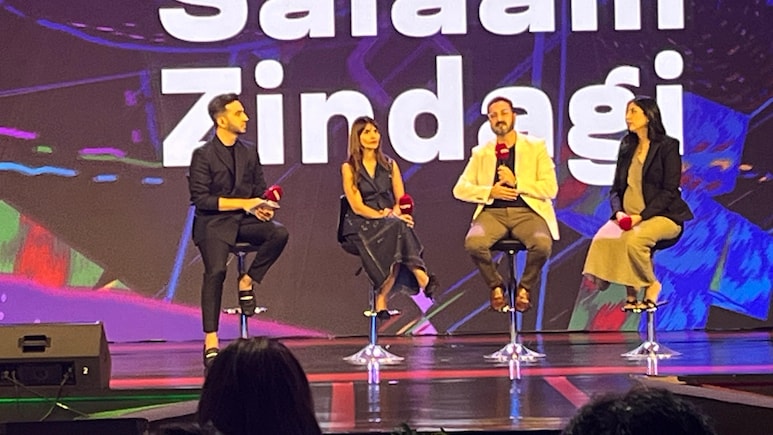
At NDTV Yuva's Mumbai edition, the panel titled Salaam Zindagi turned into a candid conversation on mental health, resilience, and navigating the ups and downs of modern life. The panel offered insights into how the conversation around mental health has evolved over the years. The experts particularly taked about the dependence on AI therapy, explaining whether it is a boon or a bane for Gen Z.
Dr. Zirak Marker, a Mumbai-based psychiatrist and psychotherapist, first highlighted how increased awareness about mental health has sparked a wave of open conversations on the topic. "The biggest change I've seen in my practice after working for 23 years is far more openness and acceptance of mental health. I think with more acceptance, we're going to see far more people receiving the right help for mental health. The openness in this generation is amazing," he noted.
Fatema Agarkar, a veteran educator, edupreneur, and the Founder and Chairperson of the Agarkar Centre of Excellence (ACE), emphasized that exposure to AI tools can lead to over-analysis of symptoms in many situations. She explained how "this remains a grey area; googling symptoms, over-analysing them and not seeking medical help" is not he right approach.
Simone Khambatta, a mom-influencer, stressed the importance of paying attention to children's mental health. She consistently advocates for recognizing symptoms and seeking medical assistance promptly. She mentioned how social media or AI is not a reliable medical advisor and said, "Everyone is a life coach now. They try something that works for them and assume it will help others as well. Instead of relying on these sources, I strongly urge people to seek medical help."
Is AI therapy reliable?
Mental health issues are complex and often require personalised treatment. Experts emphasised the importance of consulting trained professionals for accurate diagnosis and treatment, especially for serious conditions.
"If someone is facing a problem, they often start by searching the internet for information on panic attacks or depression before consulting a mental health expert," explained Dr. Marker. He made a distinction between clinical and non-clinical assistance, stating, "Approach us; we don't over-label or over-diagnose like AI chatbots. If you are feeling a certain way, we will help you determine whether it stems from an external situation or if you are experiencing clinical symptoms that require more than just talk therapy."
He also cited data indicating that "if someone isn't okay, it usually takes them nearly 8-10 years to seek medical help. If you or a loved one is struggling, reach out and encourage them to get help. This can save lives. Simply asking someone if they are okay can provide emotional support and be lifesaving."
While AI cannot replace medical professionals, it can be used in certain ways to support overall treatment outcomes. "AI is not a replacement, but it can help in things like regulating sleep. Thus, AI can be an enabler rather than an alternative," added Fatema Agarkar.
In conclusion, while AI can serve as a supportive resource in mental health care, it should not be seen as a complete replacement for professional therapists, especially for serious mental health conditions. If you or someone you know is struggling, do not hesitate to talk to an expert.
Disclaimer: This content including advice provides generic information only. It is in no way a substitute for a qualified medical opinion. Always consult a specialist or your own doctor for more information. NDTV does not claim responsibility for this information.
Track Latest News Live on NDTV.com and get news updates from India and around the world

